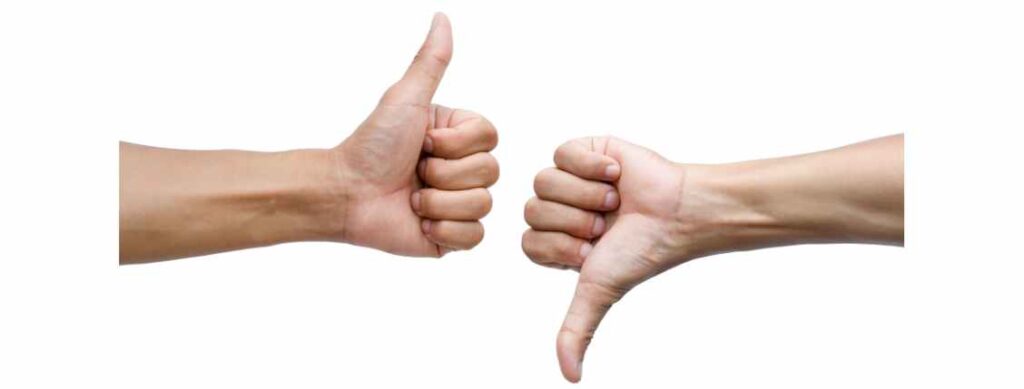Effective communication is paramount in business and the workplace. Often, compliments are exchanged as a form of acknowledgment and encouragement. However, not all compliments are created equal. Some can carry hidden meanings or subtle jabs, known as backhanded compliments. Similar to insincere apologies known as backhanded apologies. Understanding these remarks is essential for fostering a positive and respectful work environment.
Understanding Backhanded Compliments in the Workplace
Backhanded compliments occur when someone seemingly praises another person but simultaneously delivers a concealed insult or criticism. These remarks can be tricky to decipher because they may sound complimentary on the surface but carry an underlying negativity. In the workplace, where professional relationships are crucial, being aware of such remarks can help prevent misunderstandings and conflicts.

Examples of Backhanded Compliments in the Workplace
Here are 25 examples of backhanded compliments commonly encountered in the workplace:
- “Your presentation was good, considering your lack of experience.”
- “You’re much smarter than you look.”
- “You did a great job, for once.”
- “You’re surprisingly competent at this task.”
- “I never expected you to come up with such a good idea.”
- “You’re so lucky to have landed this project.”
- “You speak English really well, for someone from your background.”
- “You’re pretty good at your job, considering you’re so young.”
- “Your work is impressive, especially considering your limited resources.”
- “You’re really good at delegating tasks, almost like a manager.”
- “You’re so brave to wear that outfit to work.”
- “You’re quite articulate, unlike others from your community.”
- “I admire your confidence, even though it sometimes comes off as arrogance.”
- “You’re doing well, considering your disability.”
- “You’re a hard worker, despite your lack of formal education.”
- “You’re pretty good at negotiations, for a woman.”
- “You’re really good at taking charge, unlike most introverts.”
- “You’re ambitious, but don’t let it get in the way of being a team player.”
- “You’re so dedicated, it’s almost obsessive.”
- “You’ve improved a lot; I almost didn’t recognize your work.”
- “You’re really good at multitasking, unlike other parents.”
- “You’re great at networking, considering your social awkwardness.”
- “You’re good with numbers, considering you’re from a non-financial background.”
- ” Your presentation was very polished, considering your usual lack of attention to detail”
- “You’re a natural leader, despite your lack of managerial experience.”
While some of these comments may seem harmless at first glance, they can leave a lasting negative impact on the recipient. Confirmation bias plays a significant role in decision making including the way we speak to people. Backhanded compliments often undermine a person’s achievements, skills, or identity, reinforcing stereotypes and prejudices. It can, at times cross over into casual racism. Moreover, they can create tension and erode trust among colleagues, hindering collaboration and productivity.
Recognizing the Intention Behind Backhanded Compliments
It’s important to recognize the intention behind such remarks and address them appropriately. Backhanded compliments can sometimes resemble microaggressions in that they often subtly undermine or belittle the recipient. While both can leave individuals feeling disrespected or hurt, the key difference lies in the nature of their delivery and intent.
Microaggressions are usually subtle and often come from a place of prejudice, while backhanded compliments, though still hurtful, are meant to be compliments but can sound rude or dismissive.
If you find yourself on the receiving end of a backhanded compliment, consider confronting the individual diplomatically. Express how their comment made you feel and clarify any misconceptions they may have. Similarly, if you witness someone else receiving a backhanded compliment, offer your support and intervene if necessary to prevent further harm.
Reflecting on the Impact of Words
As for those who unwittingly deliver backhanded compliments, it’s crucial to reflect on the impact of your words and strive for genuine and constructive feedback. Instead of masking criticism with false praise, focus on providing meaningful acknowledgment and encouragement. Recognize the efforts and achievements of your colleagues without undermining them or reinforcing stereotypes. Having social awareness is a crucial component of emotional intelligence.
How do you respond to a backhanded compliment?
Responding to a backhanded compliment can be challenging, as it requires navigating the delicate balance between asserting yourself and maintaining professionalism. Here are some tips on how to respond effectively:
- Stay Calm: It’s natural to feel upset or frustrated when you receive a backhanded compliment. Try to remain calm and composed. Taking a moment to collect your thoughts can prevent the situation from escalating.
- Acknowledge the Compliment: Start by acknowledging the positive aspect of the compliment, even if it’s accompanied by criticism or negativity. This shows that you heard what was said and allows you to focus on the constructive part of the feedback.
- Seek Clarification (If needed): If you’re unsure whether the comment was intended as a backhanded compliment, politely ask for clarification. You can say something like, “Could you please elaborate on what you mean by that?”
- Express Your Feelings: If the backhanded nature of the compliment is clear, calmly express how the remark made you feel. Use “I” statements to avoid sounding accusatory. For example, you could say, “I felt a bit surprised by your comment because it seemed to undermine my efforts.”
- Redirect the Conversation: Shift the focus away from the backhanded compliment by steering the conversation towards a more positive or productive topic. You could acknowledge the feedback and then transition to discussing your achievements or ideas.
- Set Boundaries: If you consistently receive backhanded compliments from the same individual, it may be necessary to set boundaries. Politely but firmly assert your worth and ask for respectful communication moving forward.
- Educate (If Appropriate): Some people may not realize that their comments are backhanded compliments. If you feel comfortable, you can gently educate them on the impact of their words and suggest more constructive ways to provide feedback.
- Choose Your Battles: Not every backhanded compliment warrants a response. Consider the context and your relationship with the person giving the compliment before deciding whether to address it or let it go.
- Seek Support: If you’re unsure how to handle a backhanded compliment or if it’s affecting your confidence, seek support from a trusted colleague, mentor, or supervisor. They can offer advice and perspective on how to navigate the situation.
- Focus on Self-Affirmation: Remember that your worth is not determined by the opinions of others. Practice self-affirmation and remind yourself of your strengths and accomplishments, regardless of any backhanded compliments you may receive.
Ultimately, how you respond to a backhanded compliment will depend on the specific situation and your comfort level. If for example it’s part of a funny farewell message you may simply choose to ignore it and move on.
By staying calm, asserting yourself respectfully, and advocating for constructive communication, you can navigate these interactions with confidence and professionalism.
Summing Up
Backhanded compliments have no place in a respectful and inclusive workplace. By raising awareness and fostering open communication, we can create an environment where compliments are genuine, supportive, and uplifting. We should all strive to celebrate each other’s successes without reservation or qualification, promoting a culture of mutual respect and appreciation. A healthy and happy team are key to every successful business.

